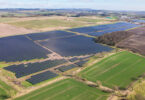The EU has approved a crucial law to protect nature, a key aspect of Commission President Ursula von der Leyen’s European Green Deal. After months of heated debate and criticism of a misleading opposition campaign by scientists, the nature restoration law narrowly passed with a few modifications. The law aims to implement recovery measures on 20% of the EU’s land and sea by 2030, gradually expanding to cover all degraded ecosystems by 2050.
Although there was strong resistance to the law, lawmakers decided not to reject it completely. Instead, they sent the proposal back to an environment committee for further discussion and refinement with member states. César Luena, a centre-left MEP from Spain who spearheaded the proposal, described it as a significant social victory that prioritizes nature without targeting individuals.
The urgency to pass this law is driven by a landmark scientific assessment in 2019, which revealed that nature is deteriorating at an unprecedented rate due to climate change, pollution, and human exploitation of land and sea. The restoration law seeks to reverse this trend and help the EU achieve its biodiversity targets, which it has previously failed to meet.
The European People’s party (EPP), led by Von der Leyen, faced opposition from various groups, including the European Conservatives and Reformists, the Identity and Democracy group, and parts of the market-liberal Renew group. These groups argued that the law would negatively impact food security and burden producers already struggling with the pandemic and energy crisis.
However, scientists have refuted these claims, with 6,000 scientists signing an open letter stating that opponents of the law lack scientific evidence and contradict it. These scientists argue that restoring nature would enhance food security, support fisheries, create jobs, and save money. They stress the importance of policymakers aligning with scientific evidence instead of succumbing to misinformation spread by lobby organizations.
The current state of nature in Europe is alarming, with over 60% of soils being unhealthy and 81% of habitats in poor condition. Furthermore, farmland bird populations have halved in the past 40 years. Conservation biologist Guy Pe’er describes the decline as alarmingly fast, even compared to the extinction of dinosaurs.
The day before the vote, farmers protested by driving tractors to the European Parliament, urging MEPs to reject the law. Climate activists, including Greta Thunberg, called for support of the law. Green groups raised concerns about changes made to the approved text, which removed a proposal for restoring agricultural ecosystems and introduced a delay in implementing the law until a formal assessment of Europe’s food security is conducted.
Despite some criticism from all sides, the law was eventually approved, although it faced rejection from the European parliament’s fisheries and agriculture committees. The law’s demands and lack of clarity about funding sources were raised as concerns by farmers and fishers. The EU expects fishers to decarbonize their fleet and protect the environment using existing funding. Daniel Voces de Onaíndi, the managing director of the fishing lobby group Europêche, emphasized the importance of fair implementation rather than relying solely on environmental regulations.
While the farming lobby, Copa Cogeca, welcomed last-minute changes to the agricultural aspect of the proposal, they remained critical of the law as a whole, citing its lack of preparation, absence of a budget, and challenges for farmers and forest owners in implementing it.
Ultimately, a few conservative lawmakers broke with their party’s stance to support an amended version of the law shortly before the vote.







